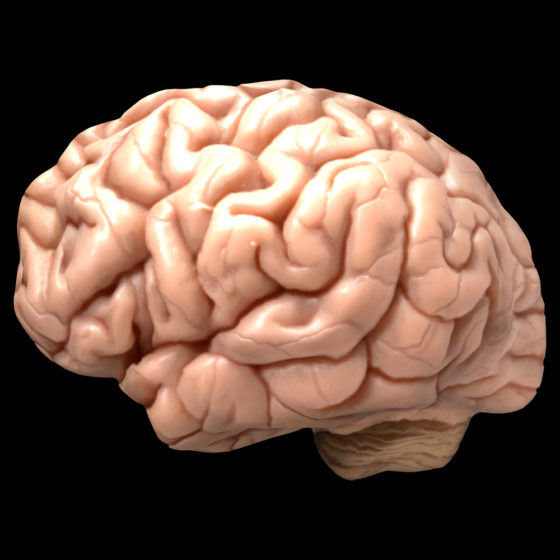Thousands of brain-damaged patients could be helped with a sleeping pill


Thousands of patients worldwide who seem unresponsive after brain injuries could be helped by an experimental study in the Netherlands which achieved miraculous results using a sleeping pill.
Richard, a patient in long-term nursing care in The Hague, apparently had no capacity to voluntarily move or speak after choking on a piece of meat aged 29.
But two years later, in 2012, his new treating physician and academic researcher Willemijn van Erp suspected there was more going on. With the agreement of his family, she gave him the sleeping pill zolpidem – and in half an hour his ‘sub-comatose’ state temporarily disappeared, he could speak, eat and walk with assistance.
‘I knew from scientific literature that in some cases like this, which we call akinetic mutism, a specific sleeping pill may have a paradoxical effect,’ she said. “The first time we gave him the medication, I needed to visit a patient in a different location of our nursing home facility. Suddenly my phone rang and it was the nurse saying someone urgently needed to speak to me. It was Richard on the phone. I nearly fell off my bike!
‘He was in a really good mood. He didn’t understand where he was and tried to order food because he thought he was calling a restaurant for a takeaway. Everyone was extremely happy. Some of the other patients in the ward who were responsive were crying, and others said: ‘Please, doctor, can I have this medication too?’ It was a marvellous day.’
Now Van Erp and an expert team lead by Amsterdam UMC neurosurgery resident Hisse Arnts have published a paper on their findings with Richard, now 40, and the drug has been adopted nationwide as a diagnostic tool, says Van Erp: ‘Thousands of people fall into comas every year. The largest proportion awaken quite soon, some die, but there’s also a group in between with a prolonged disorder of consciousness. That is literally a silent group that can’t stand up for themselves.’
Brain activity
Although previous studies have shown positive effects from zolpidem, nobody understood how it worked. But scans by the Dutch team showed Richard’s condition appeared to be caused by hyperactivity in part of his brain: the sleeping drug suppressed this, allowing other functions again.
The effects of the drug wore off in around an hour each time but this year Richard had an operation for Deep Brain Stimulation, inserting electrodes in his brain. He can now eat himself – his favourite McDonald’s – walk a little, watch television and, with the help of a letter card in front of him, express his wants.
‘He is always very happy and cheerful: he’s never sad and doesn’t understand the situation he is in,’ said Arnts. ‘He’s still in a serious situation, in a nursing home, and that’s not what you want for a young man. His family, who visit almost every day, think the effects are positive and they want to know how much he can improve. We hope to bring him to a level where he can do more and more himself, so that he can go home for a day.’
Trauma
Van Erp had worried that Richard would experience trauma when he realised his condition but this does not seem to have happened. ‘Often he’s very positive about the way his room has been decorated and will say the film posters are really nice, not knowing that those were his favourite movies,’ she said. ‘He’s in the moment and that’s it for him. He does have recollections of the time before his injury but the time in between seems to be passing by almost unnoticed.’
Arnts said that the aim is to try to bring him back to the level of that first, miraculous zolpidem treatment by dampening excess brain activity more permanently. ‘We normally think brain activity is good but overactivity can create a sort of haze,’ said Arnts.
‘The brain works like a string orchestra, with different parts sending different packages of information, but in him the first violins were playing so hard nobody else could hear anything. The sleeping medicine made the violins play more quietly and he could be more awake for a few hours in a day, if he had a visit or needed to go to the dentist. But after a few days it didn’t work so well any more. We hope now he will stay more awake for longer periods.’
Misdiagnosis
The researchers believe that there is a neglected group of people in nursing homes who deserve further attention. Further research Van Erp has conducted via Radboud UMC suggests that in the Netherlands some 41% of patients might be misdiagnosed as totally unresponsive.
‘Most people with brain damage don’t have any functional capacity any more, and you can’t bring back what has gone,’ says Arnts. ‘But in a small group of people there is this package of information in the brain whose capacities we can bring out via this sleeping medicine or another intervention. This might be people who have had a car accident, a stroke or a bleed in the brain. There’s a whole group of patients in nursing homes for whom nothing is done in terms of scientific research, but I think they are important.’
Van Erp agrees.’Richard’s story shows it’s really worth looking at these patients with a scientific perspective, both to change the situation of the patient but also because we can learn a lot which is very important for the acute phase of brain injury.’
Thank you for donating to DutchNews.nl.
We could not provide the Dutch News service, and keep it free of charge, without the generous support of our readers. Your donations allow us to report on issues you tell us matter, and provide you with a summary of the most important Dutch news each day.
Make a donation